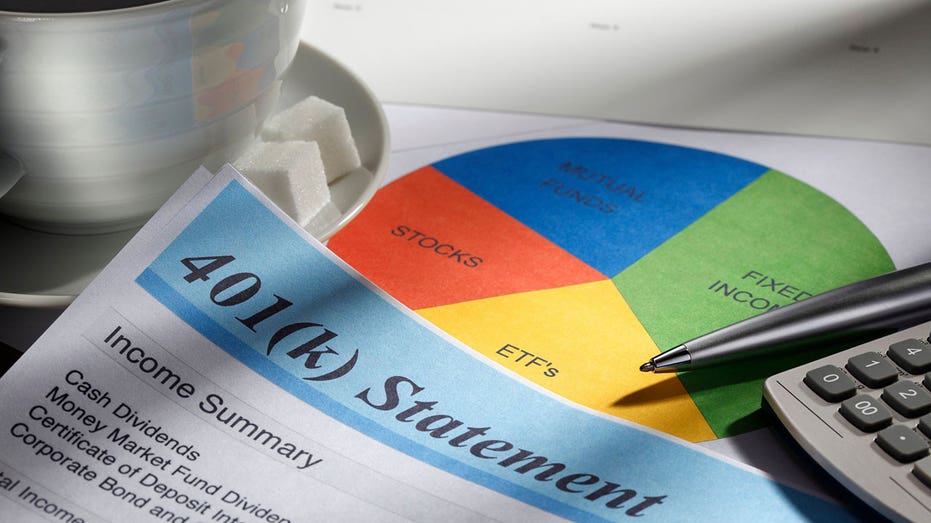What is a 401k? All you need to know about managing your retirement plan
From 401(k) withdrawals to maximum contributions, learn how to take control of your retirement plan
For decades, one of the safest retirement planning options offered by companies in the U.S. is a 401(k).
A 401(k), named after a section of the Internal Revenue Code, is a tax-advantaged, personal savings account sponsored by employers in various mutual funds. Periodically, money is withdrawn automatically from an employee's paycheck and invested into funds approved by the employee. Typically, an employer will match part or all of the employee's contribution, depending on the individual's plan. These plans are usually given to full-time workers and give employees a tax break for the money they contribute.
Many Americans use their 401(k) to help plan their retirement and live out their golden years in comfort. In 2020, the contribution limit was increased to $19,500, from $19,000. The catch-up contribution limit, for those aged 50 and over, was increased to $6,500 from $6,000.
As of March 2022, 401(k) plans held approximately $7.3 trillion in assets. In 2022, the maximum contribution to a 401(K) for individuals was $20,500 or $27,000 if the employee is over the age of 50. However, the maximum contributions for both an employer and an employee cannot exceed $61,000.
What are the different types of 401ks?
Employees are typically responsible for selecting their investments based on plans offered by their employers.
There are two different 401(k) options that each have distinct advantages for the employee. A contribution to Roth 401(K) does not affect an individual's income tax, while a traditional 401(k) allows the employee to deduct contributions from their taxable income. For a conventional plan, the money earned by the employee has no taxes due until the money is withdrawn.

401(k) plans ensure Americans have enough money to live on after they retire and no longer receive an annual wage. (Getty / Getty Images)
The Roth 401(k) account may be more attractive for some individuals because contributions are by the employee's paycheck after income taxes have been deducted. Therefore, no additional taxes are needed on the employee's contribution when it is withdrawn.
HIGH EARNER? HERE ARE 3 WAYS TO INVEST BEYOND YOUR ROTH IRA
However, the employers may offer both plans, allowing employees to diversify some contributions into a Traditional and Roth. Still, the sum of their contributions from both accounts cannot exceed the yearly limits previously mentioned.
Can you lose your 401k money?
When it comes to withdrawals, employees generally have to be at least 59 ½ years old in order to touch the money. Early withdrawal results in a penalty of ten percent, on top of the income taxes owed.
How much an individual is required to withdraw varies. The IRS has a life expectancy calculator workers should use to calculate the amount, which is intended to help spread the savings out over their lifetimes.
Required Minimum Distributions are included as ordinary income for the tax year. Failure to take the RMD results in large penalties, equal to 50 percent of the amount that was required to be withdrawn.
Employers can only remove money from a 401(k) after an employee leaves if the money in the plan is under or between a certain threshold, as stated by the IRS. If the employee's 401(k) balance is less than $1,000, the employer can legally just cut the individual a check. However, if the balance is between $1,000-$5,000 at the time of their departure, then the employer can move the contributions into an IRA of its choosing.

In some cases, employers will give their workers the option to diversify their 401(k) contributions into a Roth and Traditional plan. (iStock / iStock)
But employers are not allowed to touch balances exceeding $5,000 or more unless the employees give them permission or other instructions.
THE BEGINNER'S GUIDE TO UNDERSTANDING THE ROTH IRA
When does a 401k payout?
401(k) plans ensure that an individual has enough money after they retire and no longer receives a regular wage. Over the years, the balance of the 401(k) will grow and may tempt individuals with the desire to withdraw the money early; however, they will have to pay early withdrawal penalties and taxes.
The average American worker retires in their early to mid-sixties. The IRS allows for 401(k) withdrawal without a 10% early penalty after age 59.




















